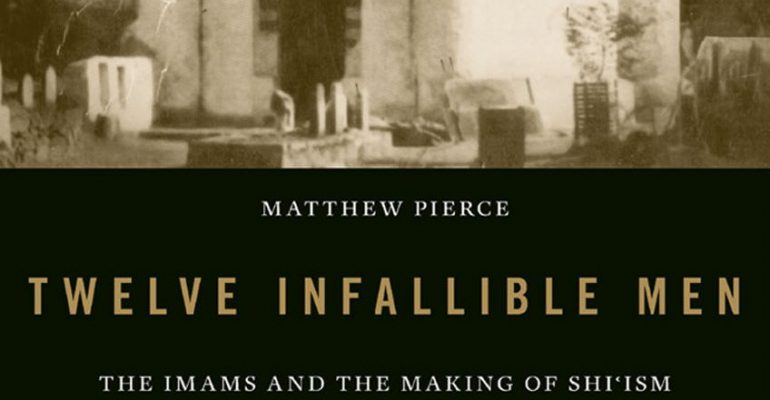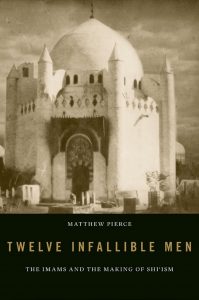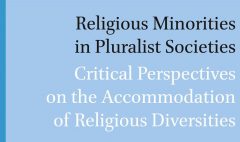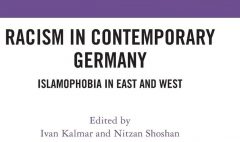Twelve Infallible Men: The Imams and the Making of Shi’ism
August 2, 2016 2023-10-08 8:51Twelve Infallible Men: The Imams and the Making of Shi’ism

Twelve Infallible Men: The Imams and the Making of Shi’ism
Twelve Infallible Men focuses on the role of narratives of the imams in the development of a distinct Shi’a identity. During the tenth century, at a critical juncture in Islamic history, a group of scholars began assembling definitive works containing accounts of the twelve imams’ lives. These collective biographies constructed a sacred history, portraying the imams as strong, beautiful, learned, and pious. Miracles surrounded their birth, and they became miracle workers in turn, but were nevertheless betrayed and martyred by enemies.
by Matthew Pierce (Author)
Publisher: Harvard University Press (June 7, 2016)
A millennium ago, Baghdad was the capital of one of history’s greatest civilizations. A new Islamic era was underway. Yet despite their great achievements, many Muslims felt society had gone astray. Shi’a Muslims challenged the dominant narrative of Islamic success with stories of loss. Faithful Muslims have long debated whether Sunni caliphs or Shi’a imams were the true heirs of the Prophet Muhammad. More influential has been the way Muslim communities remembered those disputes through stories that influenced how to think and feel about them, Matthew Pierce argues.
Twelve Infallible Men explores the role of narratives of the imams in the development of a distinct Shi’a identity. During the tenth century, at a critical juncture in Islamic history, Shi’a scholars assembled accounts of the imams’ lives, portraying them as strong, learned, and pious miracle workers who were nonetheless betrayed by their enemies. These accounts inspired and entertained, but more importantly they offered a meaningful narrative of history for Muslims who revered the imams. The biographies invoked shared memories and shaped communal responses and ritual practices of mourning. They became a focal point of cultural memory, inspiring Shi’a religious imagination for centuries to come.
In the tenth century Shi’a scholars assembled accounts of twelve imams’ lives, portraying them as miracle workers who were betrayed. These biographies invoked shared cultural memories, shaped communal responses and ritual practices of mourning, and inspired Shi’a identity and religious imagination for centuries to come, Matthew Pierce shows.
“An exemplary work on a hitherto understudied yet highly significant topic. Pierce succeeds admirably in making these biographies speak to central concerns in the contemporary study of Shi’ism in particular and of Islam in general. He writes with ease and precision, and is especially effective at using collective memory to document the formation of communal boundaries and expressions of piety. This compact and accessible work will go a long way towards offering a robust understanding of a major religious phenomenon.”— Ahmet Karamustafa, University of Maryland
“A successful book that singles out a number of the most influential themes related to the portrayal of the imams and treats them with considerable insight.”—Devin Stewart, Emory University
Source: Amazon









